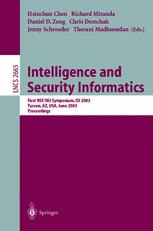

Most ebook files are in PDF format, so you can easily read them using various software such as Foxit Reader or directly on the Google Chrome browser.
Some ebook files are released by publishers in other formats such as .awz, .mobi, .epub, .fb2, etc. You may need to install specific software to read these formats on mobile/PC, such as Calibre.
Please read the tutorial at this link: https://ebookbell.com/faq
We offer FREE conversion to the popular formats you request; however, this may take some time. Therefore, right after payment, please email us, and we will try to provide the service as quickly as possible.
For some exceptional file formats or broken links (if any), please refrain from opening any disputes. Instead, email us first, and we will try to assist within a maximum of 6 hours.
EbookBell Team

4.0
26 reviewsSince the tragic events of September 11, 2001, academics have been called on for possible contributions to research relating to national (and possibly internat- nal) security. As one of the original founding mandates of the National Science Foundation, mid- to long-term national security research in the areas of inf- mation technologies, organizational studies, and security-related public policy is critically needed. In a way similar to how medical and biological research has faced signi?cant information overload and yet also tremendous opportunities for new inno- tion, law enforcement, criminal analysis, and intelligence communities are facing the same challenge. We believe, similar to “medical informatics” and “bioinf- matics,” that there is a pressing need to develop the science of “intelligence and security informatics” – the study of the use and development of advanced information technologies, systems, algorithms and databases for national se- rity related applications,through an integrated technological,organizational,and policy-based approach. We believe active “intelligence and security informatics” research will help improve knowledge discovery and dissemination and enhance information s- ring and collaboration across law enforcement communities and among aca- mics, local, state, and federal agencies, and industry. Many existing computer and information science techniques need to be reexamined and adapted for - tional security applications. New insights from this unique domain could result in signi?cant breakthroughs in new data mining, visualization, knowledge - nagement, and information security techniques and systems.